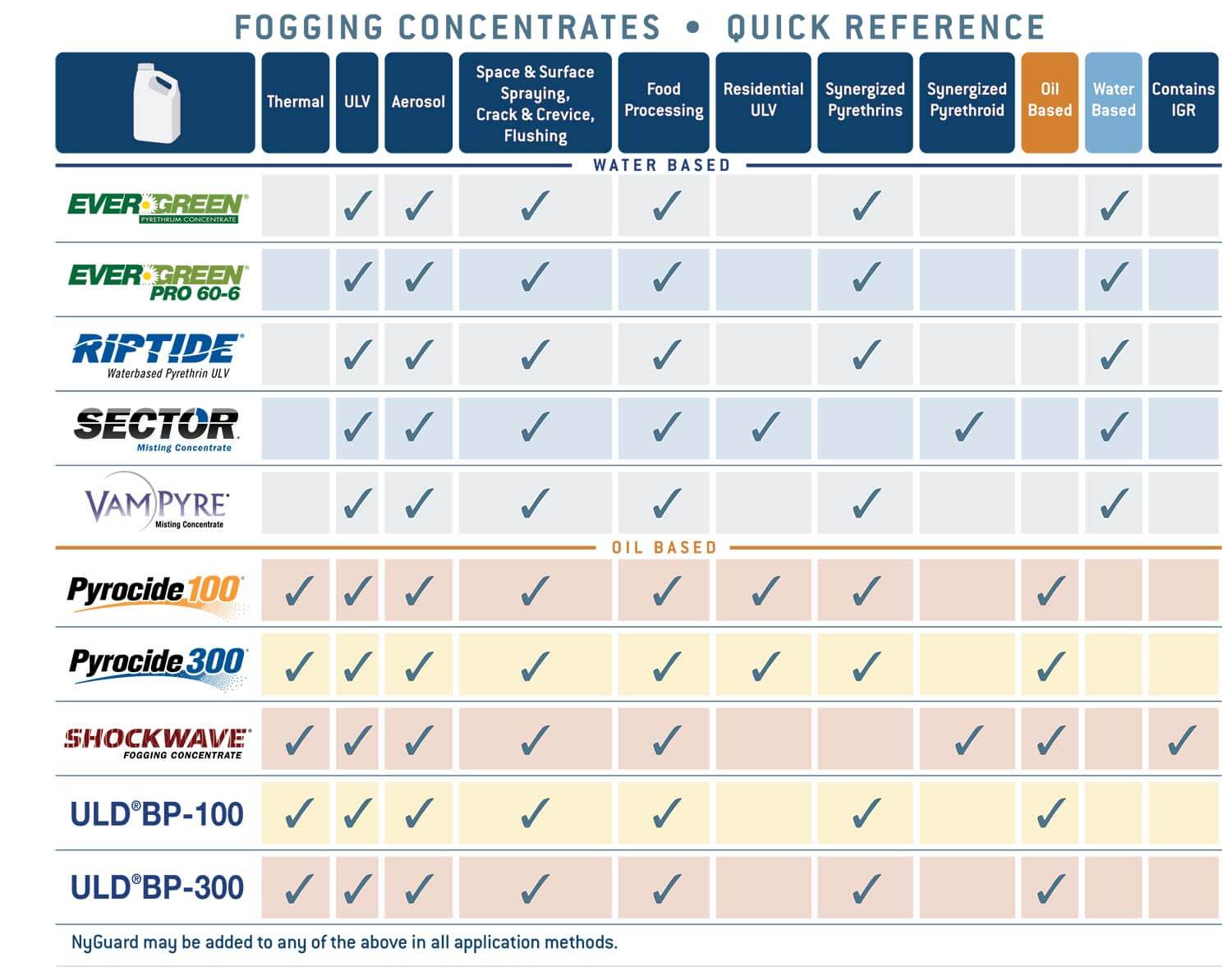Don’t Fog in a Fog
There are several things you should do before performing a fogging treatment. If you are experienced at fogging you know it will take some time, preparation, and forethought to do it right.
If you are new to fogging, check out this list of things to consider before fogging an area:
- Determine product to be used (oil- or water-based)
- Read label directions and PPE requirements
- Be aware of temperature concerns
- Calibrate fogger
- Calculate volume of area (L x W x H)
- Calculate time to treat (delivery rate and volume of space)
- Use a respirator
- Evacuate the building
- Cover aquariums and any food handling surfaces
- Store or remove food and utensils
- If using oil based products, cover plants
- Close and lock doors and windows
- When using oil-based products, turn off pilot lights, ventilation fans and blowers
– If treating a potentially hazardous area (flour mill) do not use a gas engine
– Electric motors must be explosion-proof - Open cabinet doors and drawers where target pests are infesting
So Many Fogging Products, So Little Time!
There are many fogging products on the market. Have you ever questioned as to what are the differences and which one should I use?
This chart will help you easily see the key differences in each of the MGK fogging products. Of course, you should always read the entire label for proper use instructions, but this table should help you narrow down the list to a few you may be more interested in for your specific situation.
Download MGK’s Fogging Concentrates Quick Reference Guide

Quickly find your preferred product:
- EverGreen Pyrethrum Concentrate
- EverGreen Pro 60-6
- Riptide Waterbased Pyrethrin ULV
- Sector Misting Concentrate
- Vampyre Misting Concentrate
- Pyrocide 100
- Pyrocide 300
- Shockwave Fogging Concentrate
- ULD BP-100
- ULD BP-300
Learn More:
